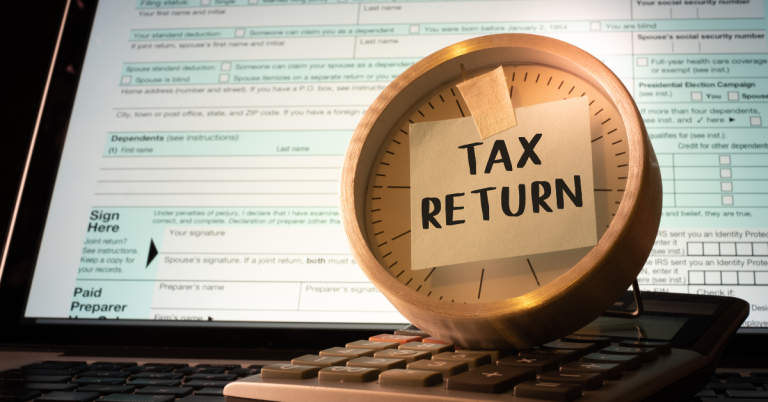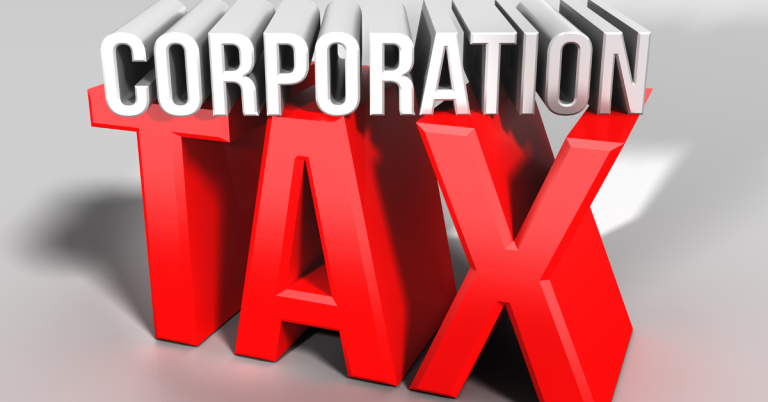When to Register as Self Employed: Things to Consider
Being self-employed comes with its unique set of rules and regulations. You must register as self-employed if you want to receive certain tax breaks, such as claiming health insurance premiums as income. But there are pros and cons to being self-employed. Here are some things to consider before deciding whether or not it makes sense for you to become self-employed.
Benefits Of Becoming A Self-Employed Individual
• Tax Breaks – If you work as a freelancer, you’ll be able to claim certain expenses against your taxes. For example, you could deduct the cost of advertising, travel costs, and even the cost of equipment used for your freelance business.
• Health Insurance – If you’re self-employed, you don’t need to pay for health insurance. Your employer pays for your coverage. However, if you do choose to purchase health insurance, you won’t be eligible for government subsidies.
• Flexibility – When you’re self-employed you’re free to decide how much you want to earn each week, month, or year. This gives you flexibility in terms of scheduling and working hours.
Disadvantages Of Being Self-Employed
• Taxes – Depending on where you live, you might owe more money in federal and state taxes than you’d make as a salaried employee. Also, since you’re responsible for paying for your own health insurance, you’ll likely end up spending more money on medical care than someone who works for an employer.

Do I need to register for self-employment?
If you are self-employed, it is important that you keep up to date with tax requirements. This includes registering with the Inland Revenue if you are required to do so. Failure to comply with HMRC rules could lead to fines, penalties, interest charges and even imprisonment.
HMRC says there are three main reasons why someone might decide to become self-employed. They include:
• A change in circumstances such as moving house or starting a family;
• An opportunity to earn extra money;
• To avoid paying taxes.
The most common way to start a business is to set yourself up as a sole trader. However, you can choose to operate under another name if you prefer.
You can choose whether to work as an employee or a contractor. As an employee, you will usually be paid weekly and receive holiday pay. But contractors are often paid monthly and aren’t entitled to holidays or sick pay.
When should I register as self-employed with the HMRC?
If you are considering starting up a business, it is important to understand how registration works. You need to know what documents you need to provide and when you need to submit them. If you don’t register correctly, you could risk paying tax and interest penalties.
The government requires businesses to register themselves with HM Revenue & Customs (HMRC). This includes sole traders, partnerships and limited companies. However, there are some exceptions such as sole traders who earn less than £1 million per annum.
Registering early will give you time to prepare your paperwork. But there is a strict deadline for registering. So, when should you start?
• Sole trader – you must file your return within 5 months of the end of the financial year. For example, if you want to apply for VAT registration on April 30th 2020, you must do so by September 30th 2020.
• Partnership – you must file your returns within 3 months of the end of each quarter.
• Limited company – you must file your accounts within 9 months of the end of every month.
You must keep records of all transactions and payments relating to your business. These include invoices, receipts, bank statements, credit card bills and insurance policies.
How do I register for benefits if I am self-employed
Self-employment is great, but it isn’t easy. You don’t always receive benefits like employees do because you aren’t actually working for someone else. This makes things very different. If you want to take advantage of certain types of benefits, you’ll need to find out what is available to you.
There are several ways to do this. First, you can contact your local council and ask about benefits. They will tell you what you can and cannot access. In some cases, you might even be able to claim tax credits and deductions too.
You could also check online. Here, you will find information regarding government schemes such as Jobseekers Allowance, Child Tax Credit, Working Tax Credit, Carer’s Allowance, Income Support, Universal Credit, Housing Benefit, Council Tax Reduction Scheme, etc. Some of these will require you to fill out forms, while others will simply give you information.
Finally, you could look into the Self-Employed Network, which is run by the Government. It provides a wealth of information and advice on everything related to starting up and running your own business.
Am I able to get working tax credit if I’m self-employed
There are many reasons why someone might become self-employed. Maybe you want to start a side hustle while you continue your day job. Perhaps you’ve been laid off and you don’t know what else to do. Whatever the reason, becoming self-employed gives you flexibility and freedom, but it also requires some planning and preparation.
How long can you trade before registering as self-employed
Trading without registration can lead to problems later down the line. If you are found to be trading without being registered as self-employed it could mean fines, court action or even losing your licence. You must register within 28 days of starting trading and keep records for three years. Failure to do so could see you fined up to £5,000.
Registering as self-employed as soon as possible can help protect yourself against potential problems. When you register as self-employed you are required to provide evidence of your earnings. This includes bank statements, payslips and tax returns. You must also prove that you have sufficient funds to cover your liabilities.
If you find out that someone else is trading without registering, report them immediately. You can contact HMRC via the Taxback website or call 0300 123 5000. They will investigate and take appropriate action.
Am I able to register as self-employed if I am currently employed
The government says that it is possible to register as self-employed even if you are currently employed. However, there are some conditions that must be met. You cannot register as self-employed unless you meet one of these three criteria:
1. Your employer does not prohibit you from registering as self-employed;
2. You are registered as self-employed already; or
3. You engage in self-employment and earn less than £10,800 per annum.
If you are unable to satisfy any of these three requirements, you will still be required to register as self- employed.
Why should I register as self-employed
Registering your company with HM Revenue & Customs gives you access to many different government services and benefits. This includes things like tax credits, child benefit, maternity pay, sick pay, public sector pensions and much more. If you are registered as self-employed, you can claim expenses such as rent, rates, phone bills, fuel costs and even wear and tear on equipment. You can also take advantage of employer National Insurance contributions, meaning you don’t have to worry about paying NI yourself.
Self employment is beneficial to both individuals, and businesses. For example, it allows you to make money without having to rely on others. In addition, you can choose what hours you work and set your own working conditions. There are no limits to the number of employees you can employ, and there are no restrictions on the type of business you can run. However, you still have to follow certain rules and regulations.
If you are thinking about starting up your own business, it is important to understand how taxes work. Tax laws change frequently, and HMRC regularly introduces new changes. These changes affect everyone, whether they are a sole trader, partnership, limited company or another form of business structure. Knowing how taxes work is essential if you want to avoid penalties and fines.
Should I register as a sole trader or a limited company?
If you’re thinking about starting up your own business, it might make sense to consider registering as a limited company, rather than a sole trader. This could help protect your personal assets against claims by creditors, and give you some extra benefits too.
A sole trader is someone who runs his/her own business without having shares in the company. They are responsible for paying taxes themselves, and can claim expenses such as rent, wages, and utilities. A sole trader is also personally liable for any debts incurred during the course of running the business. If a creditor sues a sole trader, he/she can seize any assets owned by him/her.
Limited companies are different because they are run by people called directors. Directors are usually individuals, but there are also limited companies where directors include trustees, or even trusts. In addition to being able to claim expenses, directors of limited companies can pass on those costs to shareholders. For example, if a director pays himself £1,500 per month in salary, he can charge each shareholder £1,500 per year. Shareholders can also elect to receive dividends every quarter.
There are advantages to both types of company, and choosing one type over another depends on what you want out of your business. There are also disadvantages to both types of company. You’ll find more information about this in our guide to setting up a limited company.
Other responsibilities of being self-employed in the UK
As a self-employed person, you must pay yourself a salary. You also need to make sure that you keep accurate records of your income and expenses. If you don’t do this, it could mean that you end up paying too much tax.
You must also file a Self Assessment Tax Returns each year. This includes calculating how much tax you owe. You’ll also have to report your earnings and losses from the previous financial year.
The HM Revenue & Customs (HMRC) will calculate your taxes based upon what you declared in your Self Assessment Tax Return.
Self-employed people are required to file an Annual Self Employed Income Statement (ASES). This includes information about your total income and expenses over the course of the previous 12 months.
A self-employed person is responsible for making payments into a pension scheme. He or she will also be liable for National Insurance Contributions (NICs).
What if I earn very little from self-employment” Do I still need to register and submit a self-assessment?
If you are working for yourself and earning less than £1000 each year, you do not need to file a self-assessment tax return. You simply need to fill out one form, HMRC Form 1040/1040A, and send it off. There is no requirement to make any payments.
However, if you are earning over £1000 from self-employment, you must complete a Self Assessment Tax Return and pay any taxes due to HM Revenue & Customs. This includes income tax, national insurance contributions, capital gains tax, inheritance tax and corporation tax.
What about insurance if I am self-employed
Insurance is a must for any freelancer or self-employed person. There are many types of insurances available for different industries. You might want to consider getting some professional advice from your accountant to help you decide what type of insurance is necessary for your industry.
What do I do once I have registered as self-employed
Your first step after registering as a self-employed person is to set up an efficient bookkeeping system. You must keep track of your expenses, income, taxes, and anything else you owe to anyone. This includes paying yourself a salary or commission, which is known as a drawdown.
You must research what other legal obligations and responsibilities come along with being self-employed. For example, you are responsible for paying social security tax and filing quarterly returns. You may also be required to register as a VAT trader.
Speak to other self-employed people about how they manage their business. They might offer some tips and tricks that could help you improve your efficiency.
Frequently Asked Questions
Do self-employed workers pay National Insurance?
From next month, self-employed workers will pay additional class 2 national insurance contributions. They will also have to contribute towards health care costs. But how much do they actually pay? And what happens if they don’t meet the threshold?
The government says it will raise the amount that self-employed people must pay into social security. For the 2020-21 tax year, it plans to charge those earning less than £6,515 per annum an extra 0.75%. Those who earn more will see no change.
But the government hasn’t set out exactly how much it wants to charge for the following three years. So we’ve worked out what it might cost self-employed people to pay NI contributions. We’ve looked at what the current maximum contribution is, and whether the government’s proposal would mean that most self-employed people would start paying NI.
What business insurance do I need as a self-employed person?
Professional indemnity insurance, public & product liability insurance, business content insurance, employers’ liability coverage, management liability insurance and cybersecurity insurance are just some of the types of insurances that freelance workers, contractors and small businesses often need.
Your insurance needs will vary depending on factors like the type of work you perform, whether you hire employees or if your clients demand specific types of insurance coverage.
For example, if you have employees you’ll probably need employers’ liability insurance. You might also want to consider public liability insurance if you provide goods or services outdoors or if you’re involved in construction.
If you’re working for a client, it’s important to make sure you know what your responsibilities are under contract law. In many cases, you won’t need to buy additional insurance because the terms of your agreement already include protection against losses caused by third parties. But if you don’t hold yourself out as being able to deliver a particular service, you could still be liable for damages if something goes wrong.






